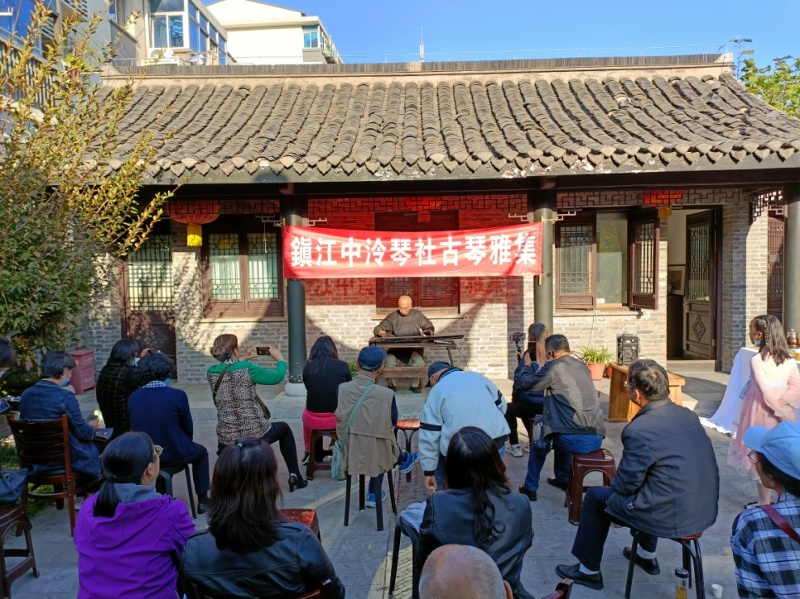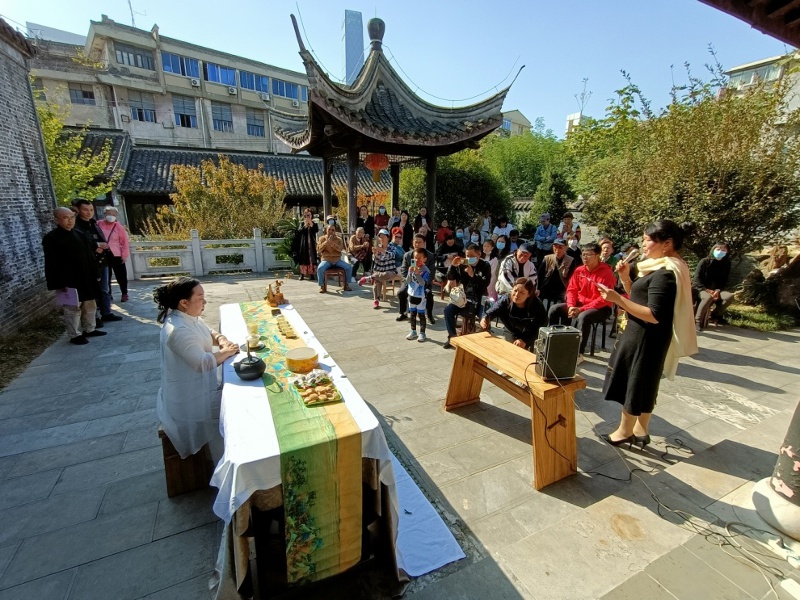Zhenjiang Museum Guqin and tea Ceremony listening and appreciation held smoothly
Recently, a Guqin and tea Ceremony listening and appreciation event hosted by Zhenjiang Museum was held at Shen Kuo's former residence in Mengxi Garden. Mr. Zhang Xiangdong, president of Zhenjiang Zhongleng Qin Association, and Mr. Li Xinhua, tea ceremony artist, introduced the traditional Chinese history and culture in the Zen environment of Qin and tea.

Playing xiao and playing the piano, reciting poems and painting, climbing mountains and traveling far away, playing the piano and drinking tea are vivid depictions of the daily life of ancient Chinese literati. They also embody the lofty and unworldly attitude of literati. Mr. Zhang Xiangdong performed the music "Two Cranes Listening to Spring" and "Remembering the Deceased" on the spot. The music was sincere, excited and depressed, revealing the infinite care and sincere feelings of nostalgia for the deceased's past.

The teacher Li Xinhua has performed a tea art performance: the early boiling of clear spring, Meng Chen shower, warm smell cup, moisten sample tea cup, appreciation of good tea, oolong into the palace, the high flush of the teapot, spring breeze, if Chen out of the bath, jade leaf back, worship good tea...... The tea rose to the leisurely and elegant, indifferent to the world.
In the beautiful music and lasting fragrance of tea, participants studied the origin and history of tea and Guqin, shared the stories and culture of tea and Guqin, felt the unique charm of Song culture, and passed on the beauty of excellent traditional Chinese culture.
This activity aims to promote and spread the excellent traditional Chinese culture, strengthen cultural confidence, and let the general public get more happiness in culture.
 渝公网安备 50010702504639号
渝公网安备 50010702504639号